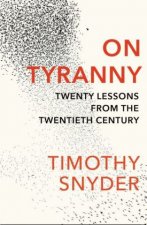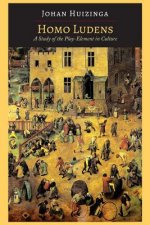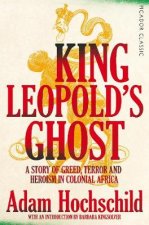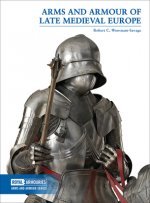
Kód: 04639277
Politics of Retribution in Europe
Autor István Deák, Jan Gross, Tony Judt
The presentation of Europe's immediate historical past has quite dramatically changed. Conventional depictions of occupation and collaboration in World War II, of wartime resistance and post-war renewal, provided the familiar back ... celý popis
- Jazyk:
 Angličtina
Angličtina - Vazba: Brožovaná
- Počet stran: 352
Nakladatelství: Princeton University Press, 2000
- Více informací o knize

1614 Kč

Skladem u dodavatele v malém množství
Odesíláme za 10-14 dnů
Potřebujete více kusů?Máte-li zájem o více kusů, prověřte, prosím, nejprve dostupnost titulu na naši zákaznické podpoře.
Přidat mezi přání
Mohlo by se vám také líbit
-

Europe on Trial
1522 Kč -

Reformation
517 Kč -

Competition in Socialist Society
1774 Kč -

Polish Society Under German Occupation
2135 Kč -

The Unknown Revolution, 1917-21
1547 Kč -

Polish Underground State 1939 - 1945
1057 Kč -

Great Influenza
303 Kč
Dárkový poukaz: Radost zaručena
- Darujte poukaz v libovolné hodnotě a my se postaráme o zbytek.
- Poukaz se vztahuje na celou naši nabídku.
- Elektronický poukaz vytisknete z e-mailu a můžete ihned darovat.
- Platnost poukazu je 12 měsíců od data vystavení.
Více informací o knize Politics of Retribution in Europe
Nákupem získáte 161 bodů
 Anotace knihy
Anotace knihy
The presentation of Europe's immediate historical past has quite dramatically changed. Conventional depictions of occupation and collaboration in World War II, of wartime resistance and post-war renewal, provided the familiar backdrop against which the chronicle of post-war Europe has mostly been told. Within these often ritualistic presentations, it was possible to conceal the fact that not only were the majority of people in Hitler's Europe not resistance fighters but millions actively co-operated with and many millions more rather easily accommodated to Nazi rule. Moreover, after the war, those who judged former collaborators were sometimes themselves former collaborators. Many people became innocent victims of retribution, while others--among them notorious war criminals--escaped punishment. Nonetheless, the process of retribution was not useless but rather a historically unique effort to purify the continent of the many sins Europeans had committed. This book sheds light on the collective amnesia that overtook European governments and peoples regarding their own responsibility for war crimes and crimes against humanity--an amnesia that has only recently begun to dissipate as a result of often painful searching across the continent. In inspiring essays, a group of internationally renowned scholars unravels the moral and political choices facing European governments in the war's aftermath: how to punish the guilty, how to decide who was guilty of what, how to convert often unspeakable and conflicted war experiences and memories into serviceable, even uplifting accounts of national history. In short, these scholars explore how the drama of the immediate past was (and was not) successfully "overcome." Through their comparative and transnational emphasis, they also illuminate the division between eastern and western Europe, locating its origins both in the war and in post-war domestic and international affairs. Here, as in their discussion of collaborators' trials, the authors lay bare the roots of the many unresolved and painful memories clouding present-day Europe. Contributors are Brad Abrams, Martin Conway, Sarah Farmer, Luc Huyse, Lszl Karsai, Mark Mazower, and Peter Romijn, as well as the editors. Taken separately, their essays are significant contributions to the contemporary history of several European countries. Taken together, they represent an original and pathbreaking account of a formative moment in the shaping of Europe at the dawn of a new millennium.
 Parametry knihy
Parametry knihy
Zařazení knihy Knihy v angličtině Humanities History History: earliest times to present day
1614 Kč
- Plný název: Politics of Retribution in Europe
- Podnázev: World War II and Its Aftermath
- Autor: István Deák, Jan Gross, Tony Judt
- Jazyk:
 Angličtina
Angličtina - Vazba: Brožovaná
- Počet stran: 352
- EAN: 9780691009544
- ISBN: 0691009546
- ID: 04639277
- Nakladatelství: Princeton University Press
- Hmotnost: 522 g
- Rozměry: 236 × 156 × 21 mm
- Datum vydání: 16. April 2000
Oblíbené z jiného soudku
-

Learn to Read Ancient Sumerian
789 Kč -

Russian Journal
357 Kč -

King's Two Bodies
683 Kč -

Heart of Europe
517 Kč -

Armies of Castile and Aragon 1370-1516
442 Kč -

One Hell of a Gamble
677 Kč -

Rise and Fall of Ancient Egypt
464 Kč -

Guns, Germs, and Steel
284 Kč -

The Origins of Totalitarianism
286 Kč -

Illustrated Encyclopedia of Uniforms of World War I
543 Kč -

The Art of Combat
841 Kč -

On Tyranny
286 Kč -

Homo Ludens
305 Kč -

Tuesdays With Morrie
286 Kč -

History of the Decline and Fall of the Roman Empire
357 Kč -

King Leopold's Ghost
303 Kč -

Meditations
217 Kč -

Streams of Gold, Rivers of Blood
775 Kč -

Travels of Ibn Battutah
308 Kč -

Augustus
410 Kč -

Age Of Capital
410 Kč -

Egyptian Book of the Dead: The Book of Going Forth by Day : The Complete Papyrus of Ani Featuring Integrated Text and Full-Color Images (History ... M
679 Kč -

Deng Xiaoping and the Transformation of China
787 Kč -

Age Of Extremes
462 Kč -

John Skylitzes: A Synopsis of Byzantine History, 811-1057
970 Kč -

Arms and Armour of Late Medieval Europe
276 Kč -

Alexander the Great
382 Kč -

End of Days
195 Kč -

Shake Hands With The Devil
358 Kč -

Complete Roman Army
543 Kč -

Distant Mirror
357 Kč -

Fall of the Roman Empire
614 Kč -

Fifties
485 Kč -

After the Ice
464 Kč -

Histories
136 Kč -

Savage Continent
410 Kč -

Oxford IB Diploma Programme: The Cold War: Superpower Tensions and Rivalries Course Companion
1313 Kč -

Age Of Empire
410 Kč -

Pompeii
303 Kč -

Life in a Cave
177 Kč -

Oxford Illustrated History of Prehistoric Europe
874 Kč -

On the Ocean
937 Kč -

Flowers of Battle The Complete Martial Works of Fiore dei Liberi Vol 1
3492 Kč -

On Ancient Warfare
1017 Kč -

Access to History for the IB Diploma: Causes and effects of 20th-century wars Second Edition
908 Kč -

Safe Area Gorazde
517 Kč -

Yoga Body
456 Kč -

Fear and Loathing on the Campaign Trail '72
357 Kč -

Fall of Carthage
410 Kč
Osobní odběr Praha, Brno a 12903 dalších
Copyright ©2008-24 nejlevnejsi-knihy.cz Všechna práva vyhrazenaSoukromíCookies


 Vrácení do měsíce
Vrácení do měsíce 571 999 099 (8-15.30h)
571 999 099 (8-15.30h)